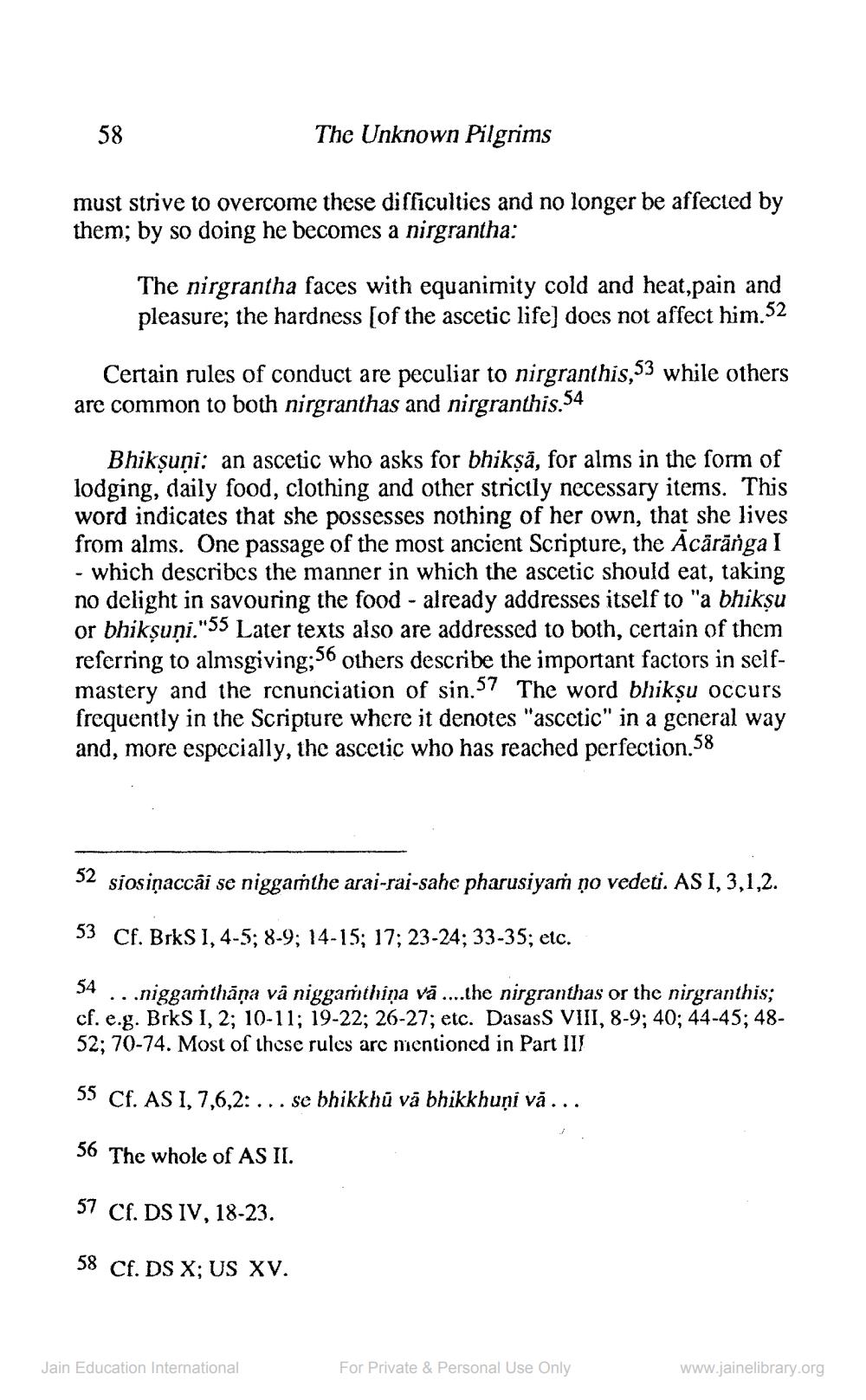________________
58
The Unknown Pilgrims
must strive to overcome these difficulties and no longer be affected by them; by so doing he becomes a nirgrantha:
The nirgrantha faces with equanimity cold and heat,pain and pleasure; the hardness (of the ascetic life) does not affect him.52
Certain rules of conduct are peculiar to nirgranthis,53 while others are common to both nirgranthas and nirgranthis. 54
Bhikṣuni: an ascetic who asks for bhikså, for alms in the form of lodging, daily food, clothing and other strictly necessary items. This word indicates that she possesses nothing of her own, that she lives from alms. One passage of the most ancient Scripture, the Acäränga I - which describes the manner in which the ascetic should eat, taking no delight in savouring the food - already addresses itself to "a bhikṣu or bh
viksuni."55 Later texts also are addressed to both, certain of them referring to almsgiving;56 others describe the important factors in selfmastery and the renunciation of sin.57 The word bhikṣu occurs frequently in the Scripture where it denotes "ascetic" in a general way and, more especially, the ascetic who has reached perfection.58
52 siosiņaccãi se niggamthe arai-rai-sahe pharusiyam ņo vedeti. AS I, 3,1,2.
53 Cf. Brks 1, 4-5; 8-9; 14-15; 17; 23-24; 33-35; etc.
54 .. niggamthāņa va niggamthiņa vā ...the nirgranthas or the nirgranthis; cf. e.g. BrkS I, 2; 10-11; 19-22; 26-27; etc. DasasS VIII, 8-9; 40; 44-45; 4852; 70-74. Most of these rules are mentioned in Part III
55 Cf. AS I, 7,6,2: ... se bhikkhu vã bhikkhuni vã...
56 The whole of AS II.
57 Cf. DS IV, 18-23.
58 Cf. DS X; US XV.
Jain Education International
For Private & Personal Use Only
www.jainelibrary.org




